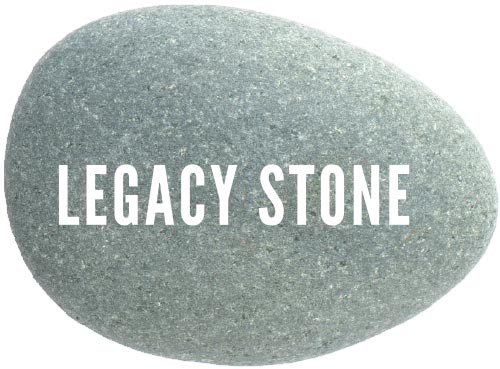
The lyrics of James Weldon Johnson’s anthem for Black America, “Lift Every Voice and Sing,” recount with poetic poignancy the story of America’s once and long enslaved Black population. Their sentiments particularly apply to the heritage of challenge, struggle, disruption, and constancy that is the story of the African American family in the United States, and its emergence “out from the gloomy past.” That there is yet an integrated unit identifiable as the African American family in the United States is more a miracle of the providence of God than anything attributable to general societal dedication to its maintenance or care.

The 9,566,000 West Africa bodies shipped to the Americas along the Middle Passage were not trafficked for the sake of the protection and preservation of family ties. Their enslavement was hardly a program for family unity. Nevertheless, and though the forebears of today’s African Americans could not see the end from the beginning, they must have seen something that kept them going “in the days when hope unborn had died.” Theirs is a story of resilience.
Resilience has been defined as the ability to bounce back from difficult times and cope well with challenges. The African American family has had to do a lot of coping with challenges, and has bounced back from a lot. Thank God for the continued testimony of His grace for coping and bouncing back that exists in the many strong, cohesive families and long-standing marriages within the African American community.
American slavery did its best to ignore marriages and destroy families. Individuals were sold off or disposed of without regard to their family connections, and at times with specific regard to undoing bonds of affection that presented an emotional challenge to the arbitrary rule of plantation masters. Even the connecting bond of language was ruptured as slaves were forbidden to communicate in their native tongues. In reaction against these incidentally and/or deliberately disruptive efforts, the nobility of many runaway slaves in relation to the Black family becomes the more conspicuously admirable. Many of them sought out their spouses and children and reunited with them in areas where the marriage and family would be safe and secure. Following emancipation, many couples that had been separated were reunited, and these were able to establish households without the threat of selling a member away.
The history of broken and at times arbitrarily established families, along with the subsequent phenomenon of reconnection and remixing has produced its own awkward legacy. For it can prove embarrassing to have to share that one’s relatives once “belonged” to another family. In some cases the actual family name may represent the family who once “owned” their ancestors. Some hand-me-downs are more embarrassing to wear than others. Reflecting on Joshua’s counsel to Israel to instruct future generations on the value of the stones of the Gilgal altar on the banks of the Jordan (Joshua 4:21-24), we acknowledge that some hand-me-down stories of yesterday’s heirlooms are surely less inviting and happy stories to tell.

Yet, with the help of God, great-grandparents, grandparents, and parents have found the skills, creativity, strength, and stamina to be able to transmit beneficial family knowledge from generation to generation to continue to nurture their families even as they continued in their contribution to building the wealth and agriculture of America.
One example of a Black subculture that has preserved its identity and practices is the Geeche people of the outer islands of Carolina and Georgia. This people group has been able to exist with their culture and families intact because slave owners could not tolerate the malaria where crops were grown. These families survived malaria, and their independence as a community also survived, allowing them to preserve traditions they had brought from Africa that emphasized family.
A Black culture trait that emphasizes family and also contributes to building self-esteem in Black youth and holding people together is the generalization or creative use of the family unit concept, inclusive of its names and titles. Thus, biological families are not the only ones who can be relatives. Where biological, nuclear units are weak or nonexistent, broader families are created and lines of friendship become blurred through kinship labeling: “aunts,” “uncles,” and other extended family titles are employed with freedom and great meaning. All involved know they belong and are closely tied together in a manner generally indistinguishable from that of the traditional biological family.

Black families continue to hold on to God’s promise “never to leave nor forsake.” Throughout their harried history they have seen His hand in their preservation and finally their deliverance through the signing of the Emancipation Proclamation. They know that it is God-given, God-guided talent and abilities that allowed them to develop and learn to read and write; that steered and inspired such souls as Booker T. Washington to pursue his own career, and to create Tuskegee Institute, where more of his people might expand their innate talents and abilities. They thank God for George Washington Carver, a former child slave, the peanut butter genius.
They thank Him, too, for prospects that still lie ahead under the guidance of a God who does not blame the “victim,” and whose voice can still be heard in the words of America’s Pledge of Allegiance, with its noble promise and presumption, a presumption to be momentarily experienced and a promise to be continually realized, of liberty and justice for all.
Contrary to the impulse of some, such an expectation cannot be relegated to a social category distinguishable from spiritual responsibility. God’s Holy Word does not separate “social justice” from spiritual imperatives. On the contrary, the Lord calls for His people to “maintain justice and do what is right”; He expects them “to loose the chains of injustice and untie the cords of the yoke, to set the oppressed free and break every yoke” (see Isa. 56:1; 58:5-7).
Today’s anxieties about cultural diversity sometimes sound like a new stanza in the song of denigrated personhood that once forbade Blacks even to speak in their own language. Thankfully, the God who fathers us all has spoken His word of salvation through history in diverse manners that could be understood and appreciated by people of all ethnicities and cultures.
It is our privilege today to continue to advance His long-proclaimed purpose to spread His saving blessing to all the families of the earth (see Gen. 12:3).
Willie S. Lee and Wilma Kirk-Lee, are Family Life Ministries co-directors in the Southwest Region Conference of Seventh-day Adventists; Wilma is also executive director of the Center for Family Wholeness